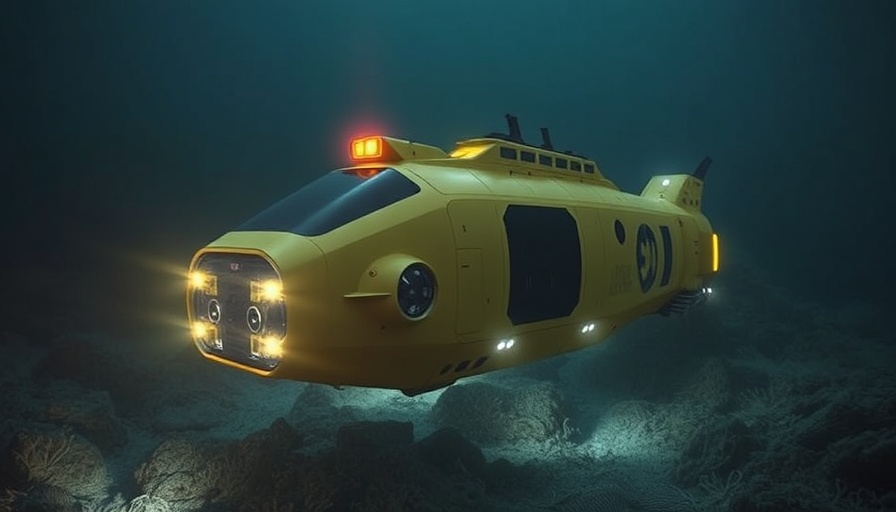
The Impending Shift in Deep-Sea Mining Practices
The U.S. Department of the Interior has recently announced the initiation of selling deep-sea mining leases, enticing the interest of start-up Impossible Metals. This unique venture aligns with the escalating demand for critical minerals essential for modern technology and sustainability initiatives. As the global landscape shifts toward electrification, these minerals are no longer just valuable—they're necessary for the future of industries and national security.
Evaluating the Environmental Impact
While the allure of deep-sea resources is potent, environmental groups are sounding alarms about the potential ecological consequences. Mining operations targeting polymetallic nodules, which are rich in minerals, could disrupt delicate oceanic ecosystems. Sponges and other organisms that thrive on the ocean floor face potential destruction due to the robotic devices used to extract these resources. Studies indicate that it may take decades for such ecosystems to recover from disturbances, posing questions about the balance between resource extraction and environmental preservation.
The Economic Implications of Deep-Sea Mining
As the demand for minerals—such as cobalt, nickel, and copper—skyrockets due to advancements in electric vehicle and renewable energy technologies, the economic motivations behind deep-sea mining become clearer. Both the public and private sectors are looking for alternative supply chains to counter China's market dominance in these critical minerals. Secretary of the Interior Doug Burgum indicated that leveraging deep-sea resources could bolster American economic independence.
Technology's Role in Sustainable Mining
Impossible Metals is presenting a more responsible methodology for deep-sea mining through the use of their advanced underwater autonomous vehicle. This robot is designed to minimize ecological disruption by employing robotic claws instead of vacuum systems, thereby lessening the environmental impact. As new technologies emerge, they could revolutionize the mining sector, offering a path toward more sustainable practices that balance economic interests with ecological stewardship.
A Diverse Array of Perspectives
This impending lease sale has garnered a range of reactions from stakeholders. Proponents argue that tapping into deep-sea minerals is crucial for sustainable development and reducing dependency on foreign mineral markets. Conversely, ecologists warn that the rush for these resources could set back conservation efforts and limit future scientific research in unexplored areas of the ocean. Such conflicts highlight the need for inclusive discussions surrounding the ethics and regulations in deep-sea mining.
Looking Ahead: Future Trends in Resource Extraction
As the federal process unfolds, the future of deep-sea mining remains somewhat uncertain. Will the U.S. commit to stringent regulations to protect marine environments, or will the entrepreneurial spirit drive rapid extraction without comprehensive oversight? The outcomes of this initiative could shape the direction for deep-sea mining practices globally, influencing environmental policies and economic strategies worldwide.
Final Thoughts: What This Means for the Tech Industry
The growing intersection between technology and resource extraction cannot be overstated. Those invested in the technology sector should watch for the outcomes of this initiative closely, as they may reflect broader trends affecting industries reliant on critical minerals. Understanding these developments will provide companies valuable insights into operational strategies and potential innovations in sustainable tech practices.
 Add Row
Add Row  Add
Add 



Write A Comment